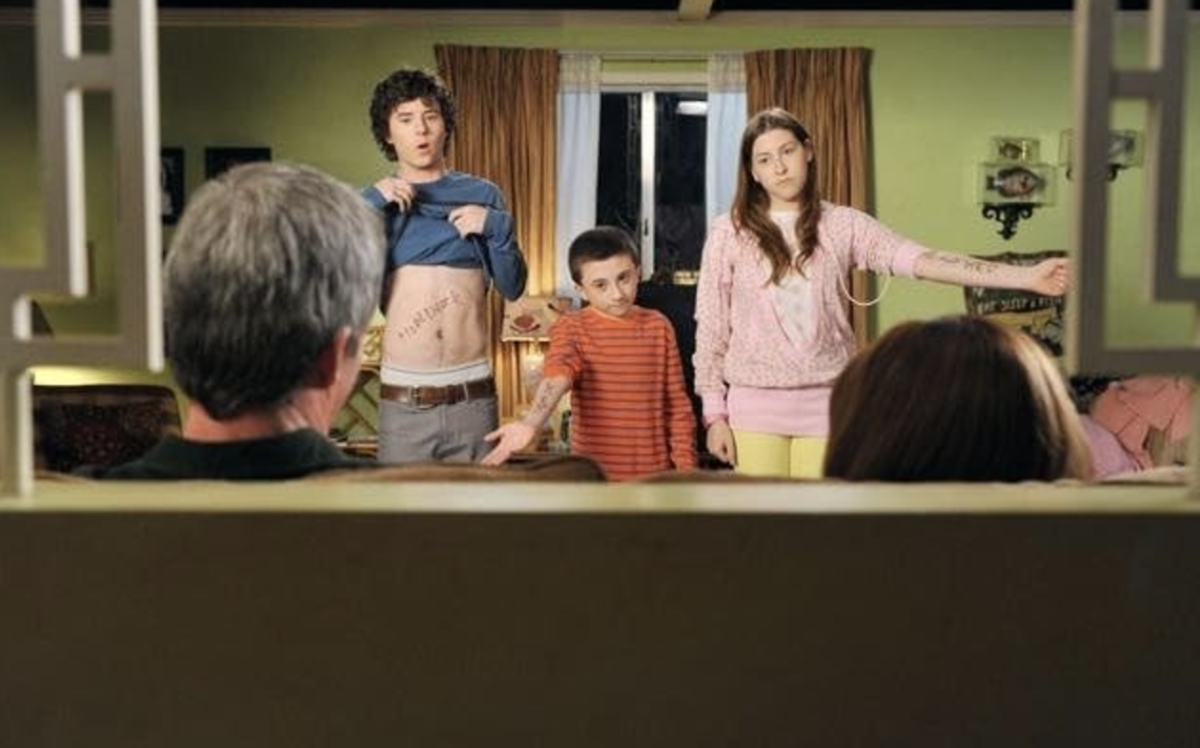
To navigate the discourse around “Girls” – and Lena Dunham in general – is to navigate a minefield. So much of the conversation surrounding this woman and her work (although, to be frank, the focus of the attention is almost always exclusively placed on her, her artistic contributions be damned) amounts to nothing more than hideous, misogynistic vitriol.
Take, for example, any Dunham-related article or video on the internet. Count the number of comments that refer to her as a “repulsive blob” who “needs to be b****-slapped.” Let’s not even pretend to think that a male writer would receive this much backlash.
Sometimes it’s casual contempt and sometimes it comes from a place of inarticulate rage. Yet either way, when you parse through the arguments spewed from boys like these, the transparency becomes ever clearer: The unparalleled hostility aimed toward Lena Dunham could only ever happen when it’s directed at a young, creative woman.
As a response, critics often double down on the acclaim, eager to justify their adoration for “Girls” and overlook any glaring oversights. This phenomenon is exactly what this type of ugly sub-engagement with the text engenders. So much of the critical dialogue revolves around the knee-jerk, venomous, painfully male-centric accusations toward the show, and not the show’s actual merit.
For all her faults – the unfortunate use of corn rows as a fashion accessory, her weird relationship with her sister and her fetishization of Japan included – to frame the conversation this way is not what a voice like Lena Dunham’s deserves. In its fifth season, let’s acknowledge “Girls” for the show that it is: an excellent, occasionally flawed psychological portrayal of hideous millennial narcissism.
The show isn’t called “Young Adults” for a reason. Not since “The Sopranos” has television treated the audience to such a cast of despicable, self-absorbed miscreants. And just like “The Sopranos,” Dunham, Jennifer Konner and the rest of the writing team never fail to find ways to pathologize the theatrical antics of Hannah Horvath (Dunham) and the rest of the cast’s white, privileged 20-something-year-olds trapped in arrested development.
Hannah and her compatriots engage in behavior worthy of condemnation, yet the script’s intelligence ensures that they always remain unmistakably, painfully human. How can someone look at a line from one of ditzy Shoshanna Shapiro’s (Zosia Mamet) co-workers – in which she tells Shosh, “You seem very wealthy because of your spoiled attitude” – and not accept that Lena Dunham is in on the joke?
While we’re on the subject of jokes, one of the best aspects of “Girls” is its natural ability to get a laugh, and it’s a quality that persists well into its fifth season. The level of self-awareness permeating the show leads to some one-liners that cut deep in their cluelessness.
The dialogue is remarkable because it functions on several different levels at once. On the surface level, a character can make a simple funny remark. As whiny malcontent Ray Ploshansky (Alex Karpovsky) fidgets at a wedding, he complains that the stilted conversations around him make him feel like he lives in an E.E. Cummings poem. It’s an amusing line by itself, yet the genius of “Girls” lies in how every action and word uttered by a character betrays their exact emotional and psychological state of mind.
“Girls” doesn’t exactly have a traditional narrative. The highest stakes involve job searches and relationships woes, romantic or otherwise. Instead, “Girls” operates on a psychologically-based plot, where individuals within an episode walk into a scene with a certain feeling, commit an action or have an action committed upon them, and as a result have their emotions informed by what occurred before.
Nevertheless, the fifth season of “Girls” displays a key ingredient that the show always lacked: hope. Often, with the seeming inability for the characters to find escape hatches out of their self-made prisons, it appeared as though they would never show any sign of growth or progress. These recent episodes have shown Hannah, Marnie (Allison Williams), Shoshanna and Jessa (Jemima Kirke) as more well-adjusted than ever seen before.
This is particularly the case for Jessa, a figure Dunham never seemed sure about how to approach. The first three girls were terrible in a compelling way because they were a recognizable type of terrible. Jessa’s machinations, however, verged on supervillainry and failed to mesh with the tone of the show. Now, with her recent attempts to fix the misshapen hole of her life and become less of a toxic sludge bath, viewers see that even the most maladjusted have a chance to get out of the ruts they find themselves in.
If there’s one quality I’ve noticed from 20-somethings (and I’m 19, so I’ll freely admit that this analysis comes from personal observation rather than direct experience), it’s the constant war they wage within themselves. How they wish to craft their self-image duels with how they actually feel, and how they actually feel may not line up with how they actually are, and the implications that arise from that disconnect unleashes an unquantifiable sense of anxiety.
“Girls” captures that conflict between identity and insecurity, and it does so through poignancy, wit and empathy.
Nate Taskin can be reached at [email protected].



















